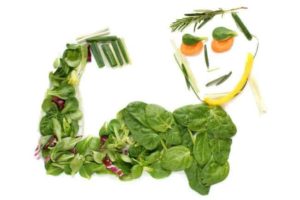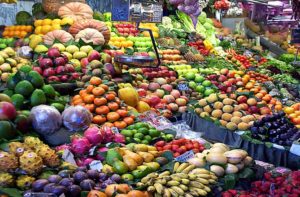What’s the truth about protein?
June 27, 2017

That’s a question I come up against constantly in my practice. I speak with mothers concerned as to whether their toddler will get enough protein after they wean from breast milk. I speak with parents of growing adolescents who wonder if plant-based eating will support the rapid growth of their soon-to-be teenager. And with adults who push their body hard all day and fear their lack of energy is due to not enough protein consumption.
There is a lot of information out there and it can be difficult to decipher what is just good marketing from what is actually factual. I recently dug deep into this topic as I prepared for my new book, Building Immunity In Babies & Young Children and believe I came up with some very sound information. I discovered two resources I would recommend that you take a look at as well:
Becoming Vegan, Express Edition by Brenda Davis RD and Vesanto Melina, MS RD is an exceptional resource. Don’t let that name scare you away. It has a wealth of information for meat and plant eaters alike.
Which Type of Protein Is Better for Our Kidneys by Michael Greger, MD. In six minutes you can learn which proteins support kidney health based on the most up to date research. Once on Dr. Greger’s site you may even find some other videos of interest as well.
Here are three take-aways that I think will intrigue you:
- Plant-based eaters need to aim at consuming .8 grams of protein per 1 kilo of weight or 2.2 lbs. So, for a 135 lb adult, that’s roughly 55 grams per day. I’ve shared some suggestions of what might make up that daily amount below. For non-breastfeeding toddlers 2-4 years of age, a slightly higher ratio is required and the need is about 19 grams a day. Breastfeeding babies and toddlers receive all the protein they need from mother’s milk.
- Protein quality is not all alike and depends on the amino acid content. There are 9 essential amino acids that can only be gotten from our diet and they all can be found in plant foods as well as animal products.
- While all protein is a challenge for our kidneys to manage, plant protein is by far the easiest on this all important filtering organ.
So what are good plant sources of protein? Here’s a handy chart that might help put your mind at ease.
| Lentils (cooked) | 1 cup | 18g |
| Beans (cooked) | 1 cup | 15g (approximately) |
| Green peas | 1 cup | 8g |
| Spinach (cooked) | ½ cup | 3g |
| Avocado | ½ avocado | 2g |
| Broccoli (cooked) | ½ cup | 2g |
| White potato | 1 medium | 4g |
| Hemp | 3 tablespoons | 10g (approximately) |
| Chia | 2 tablespoons | 4g |
| Seeds: pumpkin, sunflower, sesame |
1/4 cup | 7-9g |
| Quinoa (cooked) | 1/2 cup | 7-9g |
| Wild rice (cooked) | 1 cup | 6.5g |
| Nuts: almonds, cashews, brazil, walnuts (raw) |
1/4 cup | 7-9g |


